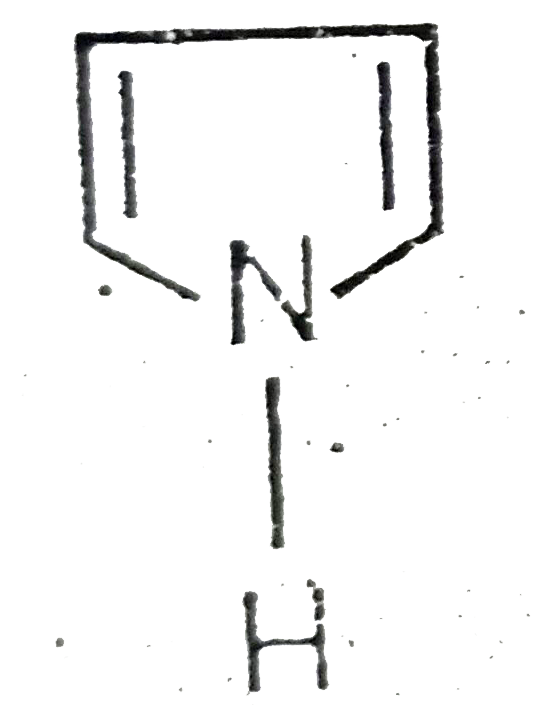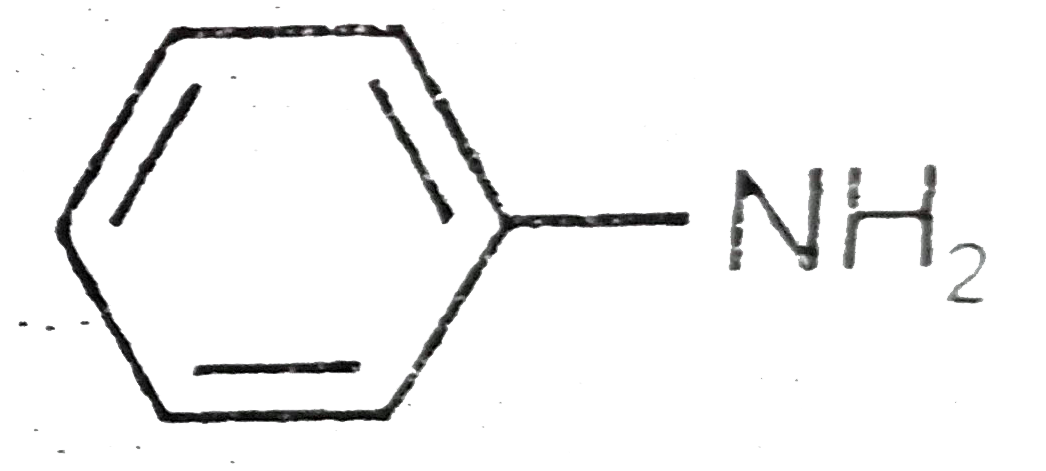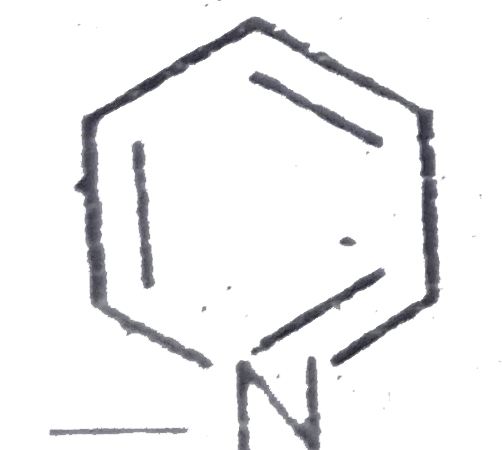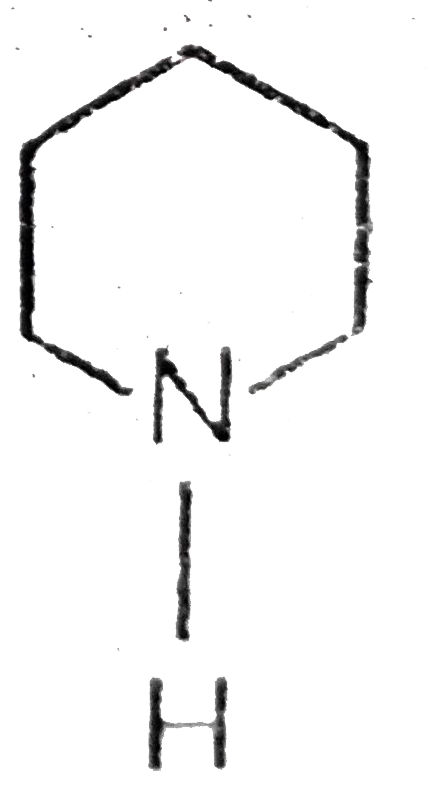Which of the following is the strongest base in water?




The correct Answer is:D
To determine which of the following compounds is the strongest base in water, we need to analyze the stability of their conjugate acids. The stronger the base, the less stable its conjugate acid will be. Here’s a step-by-step solution:
Step 1: Identify the Compounds
Assume we have four compounds to analyze:
1. Compound A (e.g., NH2-)
2. Compound B (e.g., C6H5NH2)
3. Compound C (e.g., R-NH-)
4. Compound D (e.g., R2N-)
Step 2: Formulate the Conjugate Acids
To analyze the basicity, we need to add a proton (H⁺) to each compound to form their conjugate acids:
- For Compound A: NH2- + H⁺ → NH3 (conjugate acid)
- For Compound B: C6H5NH2 + H⁺ → C6H5NH3⁺ (conjugate acid)
- For Compound C: R-NH- + H⁺ → R-NH2 (conjugate acid)
- For Compound D: R2N- + H⁺ → R2NH (conjugate acid)
Step 3: Analyze the Stability of Conjugate Acids
Next, we need to evaluate the stability of each conjugate acid formed:
- Compound A (NH3): Stable, as it has no electron-withdrawing groups.
- Compound B (C6H5NH3⁺): Less stable due to the presence of the aromatic ring, which can withdraw electron density.
- Compound C (R-NH2): Generally stable, but depends on R group.
- Compound D (R2NH): Likely stable, especially if R groups are electron-donating.
Step 4: Compare Basicity
The stability of the conjugate acids indicates the strength of the bases:
- The less stable the conjugate acid, the stronger the base.
- Compound A (NH3) is stable, but not as strong as others.
- Compound B (C6H5NH3⁺) is less stable due to electron withdrawal.
- Compound C (R-NH2) can be a strong base depending on R.
- Compound D (R2NH) is likely the strongest base due to electron-donating R groups enhancing basicity.
Step 5: Conclusion
Based on the analysis, Compound D (R2NH) is the strongest base in water because it can donate electrons more readily, leading to a less stable conjugate acid.
Final Answer:
The strongest base in water is Compound D (R2NH).
---
Assume we have four compounds to analyze:
1. Compound A (e.g., NH2-)
2. Compound B (e.g., C6H5NH2)
3. Compound C (e.g., R-NH-)
4. Compound D (e.g., R2N-)
To analyze the basicity, we need to add a proton (H⁺) to each compound to form their conjugate acids:
- For Compound A: NH2- + H⁺ → NH3 (conjugate acid)
- For Compound B: C6H5NH2 + H⁺ → C6H5NH3⁺ (conjugate acid)
- For Compound C: R-NH- + H⁺ → R-NH2 (conjugate acid)
- For Compound D: R2N- + H⁺ → R2NH (conjugate acid)
Next, we need to evaluate the stability of each conjugate acid formed:
- Compound A (NH3): Stable, as it has no electron-withdrawing groups.
- Compound B (C6H5NH3⁺): Less stable due to the presence of the aromatic ring, which can withdraw electron density.
- Compound C (R-NH2): Generally stable, but depends on R group.
- Compound D (R2NH): Likely stable, especially if R groups are electron-donating.
The stability of the conjugate acids indicates the strength of the bases:
- The less stable the conjugate acid, the stronger the base.
- Compound A (NH3) is stable, but not as strong as others.
- Compound B (C6H5NH3⁺) is less stable due to electron withdrawal.
- Compound C (R-NH2) can be a strong base depending on R.
- Compound D (R2NH) is likely the strongest base due to electron-donating R groups enhancing basicity.
Based on the analysis, Compound D (R2NH) is the strongest base in water because it can donate electrons more readily, leading to a less stable conjugate acid.
The strongest base in water is Compound D (R2NH).
Topper's Solved these Questions
- ORGANIC CHEMISTRY: SOME BASIC PRINCIPLE AND TECHNIQUESBook:AAKASH INSTITUTEChapter:ORGANIC CHEMISTRY: SOME BASIC PRINCIPLE AND TECHNIQUESExercise:SECTION-C OBJECTIVE TYPE QUESTION (MORE THAN ONE OPTIONS ARE CORRECT)
Explore 18 Videos
- ORGANIC CHEMISTRY: SOME BASIC PRINCIPLE AND TECHNIQUESBook:AAKASH INSTITUTEChapter:ORGANIC CHEMISTRY: SOME BASIC PRINCIPLE AND TECHNIQUESExercise:SECTION-D LINKED COMPREHENSION TYPE QUESTIONS
Explore 6 Videos
- ORGANIC CHEMISTRY: SOME BASIC PRINCIPLE AND TECHNIQUESBook:AAKASH INSTITUTEChapter:ORGANIC CHEMISTRY: SOME BASIC PRINCIPLE AND TECHNIQUESExercise:ASSIGNMENT SECTION-A COMPETITION LEVEL QUESTIONS
Explore 50 Videos
- ORGANIC CHEMISTRY : SOME BASIC PRINCIPLES AND TECHNIQUES Book:AAKASH INSTITUTEChapter:ORGANIC CHEMISTRY : SOME BASIC PRINCIPLES AND TECHNIQUES Exercise:Assignment(Section-D)(Assertion - Reason Type Questions)
Explore 12 Videos
- POLYMERSBook:AAKASH INSTITUTEChapter:POLYMERSExercise:ASSIGNMENT (SECTION-D)
Explore 13 Videos
Similar Questions
Knowledge Check
Which of the following is the strongest acid in water?
AHNO3BH2SO4CHCIDC2H5OHWhich of the following is a strongest base ?
ANH3BCH3NH2C(CH3)2NHD(CH3)2NWhich of the following is a strongest base ?
AAmmonium hydroxideBSodium hydroxideCMagnesium hydroxideDCopper hydroxide
